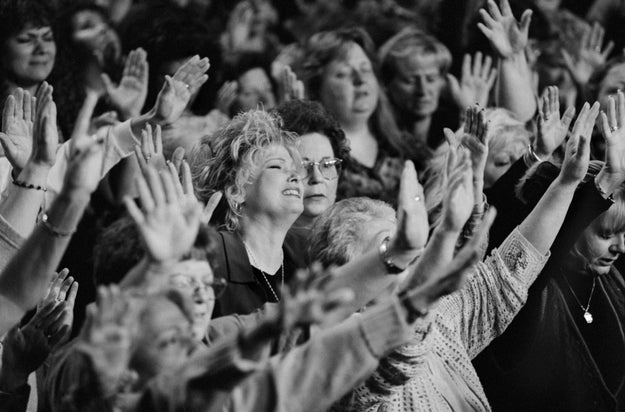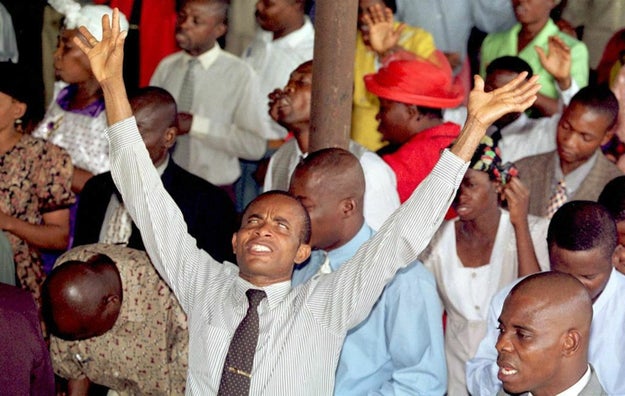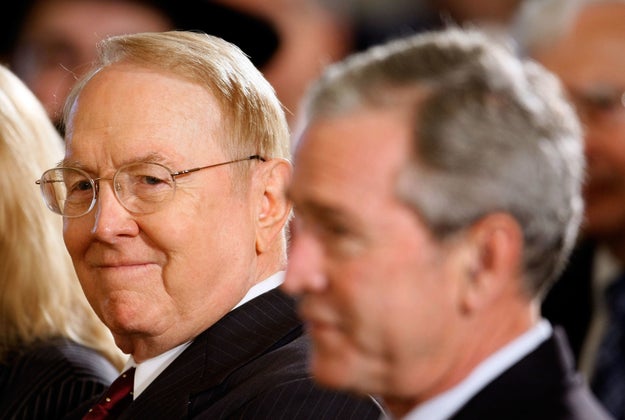Conservative Evangelicals Have Shown Me Who They Really Are
BUY quality bulk Yahoo Twitter Hotmail Google Voice Facebook Accounts
wallynlayla 25yo Terre Haute, Indiana, United States

A. Abbas / MAGNUM PHOTOS
For my 13th birthday, my parents gave me a diary. It was pink and orange with a red clothbound spine; on the bottom of the front cover, a sticker boasted that the diary “lies flat as you write.”
I was already a seasoned journal keeper, having filled notebooks with stories and diary entries throughout our moves from England, where I was born to Nigerian parents, to Gambia, to Ohio, back to England, and then back to the United States in 2001 — Rhode Island, specifically, and seemingly this time to stay.
In my diary, I obsessed over Orlando Bloom (“The hottest guy ever! I love him he’s so hot!!!”). I shared my thoughts on Michael Jackson, then about to go to trial for child molestation (“He is honestly such a loonie”). I recorded the latest middle school goss (“The whole world is in a tizzy because R* found out K* likes him”).
I was also concerned — gravely concerned — about the state of my friends’ souls. And the moral character of America at large:
12/04/03
The world is going crazy. Everybody’s obsessed with atheism and abortion and stupid stuff like that.
It’s so pathetic! I feel like this entire world is becoming corrupt with atheists and gay people that want to get married. Everybody keeps talking about tolerance and it’s getting scary. On TV, the Christmas ads all say Happy Holidays never Merry Christmas. Don’t they get it? Christmas is about Christ! The hymn “Onward Christian Soldiers” is really being put to the test. I feel like I’m in a war, in a war to stop this atheism garbage!!!
Between the ages of 13 and 15, I harbored a zeal for the trenchant conservative politics of white evangelical America. I watched Fox News diligently. I prayed over the souls of my classmates and wrote essays about why abortion was wrong. I argued with teachers about the moral slippery slope of gay marriage. I invited friends to church youth group outreach events in the hope that they would come to know Jesus. I listened to James Dobson’s Focus on the Family radio half hour. I watched The Passion of the Christ in theaters twice. I was happy George W. Bush won reelection in 2004 because it meant a “real” Christian would continue to be in office.
My beliefs were rigid, dogmatic, and fervent — until they weren’t. Gradually, I drifted away from such conservative orthodoxy, frustrated by the lack of reckoning with racial injustice and the impossible compromises asked of everyone who wasn’t a straight white man. But having once ascribed to such a stringent, inflexible worldview has left its residue. It means that I’m struggling, now, to understand how key leaders of a faith tradition I once identified with so strongly appear to have abandoned all their principles in pursuit of naked political gain.
2017 has been a strange, turbulent time among evangelicals — an imperfect, imprecise term for the wide swath of mostly white Protestant Americans who believe in the ultimate authority and inerrancy of the Bible, eternal salvation only through Jesus Christ, and Jesus’s command to make disciples.
It is also a word, notably, that I never used even when I was technically one. “Christian” simply sufficed and continues to be the preferred descriptor for most evangelicals. And though many black American Christians hold similar theological beliefs, historically African-Americans had their own churches — and so the word “evangelical” has generally not applied to them or has come with qualifiers. There is also a growing population of Latino- and Asian-Americans who have evangelical beliefs, though again, it’s become such a weighted term that it’s usually employed to describe various white Protestant denominations instead.
Between the ages of 13 and 15, I harbored a zeal for the trenchant conservative politics of white evangelical America.
Not all evangelicals are politically conservative, but in the age of Donald Trump, those evangelicals who don’t share hardline, politically conservative views have been shedding the label left, right, and center. In last year’s presidential election, 81% of white evangelicals voted for Trump, a twice-divorced New Yorker who has never asked Jesus for forgiveness (the defining tenet of Christianity). And this has signaled a drastic change in the values evangelicals now say they look for in their political leaders.
According to a recent PRRI/Brookings poll, 72% of white evangelicals believe an elected official who commits an immoral act in their personal life can still behave ethically and fulfill their duties in their public and professional lives. In 2011, only 30% of white evangelicals believed this.
Similarly, 49% of white evangelicals now say that having very strong religious beliefs is very important for presidential candidates, down from 64% in 2011.
Some evangelicals have griped among themselves that the pollsters rely on self-identification for their data, meaning anyone who calls themselves an evangelical is considered one, regardless of actual theological beliefs and regular church attendance. But the fact that leaders such as Franklin Graham, Dobson, and Jerry Falwell Jr. have endorsed Trump speaks volumes about the priorities of the conservative evangelical movement. That other prominent evangelicals like Rick Warren and Tim Keller have opted to say nothing is just as notable.
The parallel universe American evangelism has created for itself — manifested in separate colleges and separate media, music, and film — goes hand in hand with a deep-rooted distrust of anything mainstream, particularly the media. The controversy over continued evangelical support of Alabama senatorial candidate Roy Moore — who narrowly lost Tuesday night in the midst of multiple accusations of sexually inappropriate behavior with teenage girls — only emphasizes the gap between moral values and venal power grabs for social conservative causes.
And yet this massive change of heart among evangelicals in the moral standard they hold political leaders to, and the unseemly compromises they seem willing to make for political power, feels almost like a personal betrayal to me. And I’m not alone in this. Though younger evangelicals were already leaving the church before the 2016 election, the results of the election in some ways became merely an irrevocable turning point, the latest proof confirming that a significant portion of evangelicals appear to have lost their way.
But as much as I try to parse how and why some members of the faith tradition I grew up with have abandoned core principles, it’s clear that the story of evangelical Christianity in the US and, to be honest, the world, has often included ruthless white supremacy. There was never really any place for someone like me.

A worshipper at a Lagos-based Christian Pentecostal Mission (CPM) during a church service March 19, 2000.
Pius Utomi Ekpei / AFP / Getty Images
Any story about my dalliance as a member of the American Christian right must begin with a general account of the rise of Christianity in Nigeria. It is a rise inextricably linked to the ugly twinned histories of slavery and colonialism in the country. The first Christian missionaries to set foot in what is now known as Nigeria were the Portuguese in the 1400s. (They are responsible for the name of Nigeria’s most populous city, Lagos). But it was British abolitionists who would help foment the ascendancy of Christianity in Nigeria, particularly in the Southern and Western regions in the 1800s. Samuel Ajayi Crowther, the first Nigerian to be ordained as an Anglican bishop, was kidnapped by Portuguese settlers in the 1800s and later freed by the British, who then sent him to England where he converted to Christianity.
Crowther returned to Nigeria to make new disciples and was the first person to translate the Bible into Yoruba, my father’s language. Over the course of a century, Christian missionaries from various denominations — Anglican, Catholic, Methodist — built schools and hospitals all over the country. Now Nigeria is home to the largest number of Christians in Africa, as well as an equally dominant Muslim population, who are mainly located in the northern part of the country. Religious skirmishes are not infrequent — Boko Haram, which subscribes to a particularly militant (and some would say actually non-Islamic) interpretation of Islamic law, is proof of this tension.
My father grew up baptist in Kano. My mother’s people, who are of Urhobo origin, were for a time members of the Celestial Church of Christ, famous for requiring all its members to dress in white and for some creepy, cultlike beliefs. She became a Christian in college, where my parents met while my father was studying to be a medical doctor and my mother was getting a degree in English. They started dating; my father got a visa to do more medical training in Britain. After marrying, my mother joined him. My twin sister and I were born shortly after.
My father moved us all to Gambia when my sister and I were 4. Though it is a majority Muslim nation, we attended church weekly and left school early on Friday so Muslim staff at our private school could say their evening prayers. We would come to America for occasional visits to see family in Ohio, and eventually we moved there for a year.
Because of the lack of media outlets (there was one television station) and public infrastructure in Gambia, my sister and I often consumed dubbed versions of whatever films and random TV shows our parents had seen fit to bring back with them from the US. And so we read a lot of The Baby-Sitters Club books and watched a recorded VHS of The Sound of Music that ended when the Von Trapps take refuge in the convent, which meant that my childhood version of the film was a lot darker than many others. We also listened to a lot of contemporary Christian music, or CCM. Artists like Amy Grant, Steven Curtis Chapman, and Jaci Velasquez were well played on our CD players. We had videos of Christian educational paraphernalia like the Donut Repair Club (there’s a hole in everyone’s heart, like a doughnut, that only Jesus can fill!) and Psalty, the freakish Barney-indebted anthropomorphic Bible that sang Christian music geared toward children. Music selections from Hillsong, the juggernaut Australian church and music publishing company, were on regular rotation during the praise and worship portions of our church service.

Stills from the kids' show Psalty the Singing Songbook.
Via YouTube
It’s hard to fully grasp how successful American missionaries have been in homogenizing wide swaths of Protestantism around the world. Even as Christian practices in various parts of the world inevitably morph to fit with local customs, such cultural changes are akin to the differences between McDonald’s in Tokyo and McDonald’s in Fresno, California. They are both radically different and ultimately the same.
That sameness meant that my familiarity with American Christian Protestantism was an anchor in the midst of a disorienting transatlantic move when I was 11. Even with the jarring shift, we still sang the same rote worship songs and shared the same basic beliefs, and that provided some comfort. That this type of Christianity often came hand-in-hand with socially conservative politics was not something that I fully understood until I was thoroughly immersed in it.
11/04/04
The media can be deceiving. Can you believe Bush won the elections?? After months of bitter arguments on both sides, Fahrenheit 911 and other such jargon, Bush still managed to win. And what was the top issue? Moral values. Gay marriage, abortion, stem cell research to name a few. Meanwhile on TV, Dan Rather and Judy Woodruff rant and rave about the economy and [John] Kerry. During all three presidential debates, Kerry had seemingly won. The exit polls were showing strong support for Kerry. But on 11/02/04, the evangelical Christians and the free thinkers came out in full attire, as Bill O’Reilly says they stuffed the “media elite!”
I did not realize it at the time, but from roughly 2000 to 2008, conservative evangelical Christians enjoyed an unprecedented amount of political power.
Historian Frances FitzGerald puts it this way in The Evangelicals: The Struggle to Shape America, her comprehensive history of the Christian right: “George W. Bush proved the most sympathetic president the movement had ever experienced and hugely popular in its base. In the wake of the 2004 election the movement could claim to be a major player in the Republican victory.”
It could be argued that my nascent social conservatism (I never much cared for the economics part, nor did I fully comprehend it, having a cursory understanding of American politics) was a result of a distinctive contrarian streak, living as we did in one of the most liberal states in America. In retrospect, perhaps it was also a perverse way of embracing my otherness as a black immigrant girl. Or it could have just been a temporary passion.
The nondenominational church we attended had its share of social conservatives, but the youth group pastors were pretty firm about steering away from outright endorsements. Instead, they presented themselves as moderates on most issues. I remember getting into an argument with one youth leader about banning public prayer in schools. “Why do you have to pray publicly?” he said. “You can pray in your head.” But I didn’t believe in nuance or shades of gray. Not with James Dobson on the radio.
Dobson is the founder of Focus on the Family, the sprawling Christian apparatus that includes a media company (in its heyday it published 10 magazines and newsletters geared toward every family age group, from kids to moms), a radio show (at one point syndicated in 34 states), and a political advocacy group (Dobson was instrumental in using his platform — 2 million radio listeners strong — for getting out the vote for Bush’s reelection in 2004).
I didn’t believe in nuance or shades of gray. Not with James Dobson on the radio.
Dobson, born in 1936, was a child psychologist who, notably for an evangelical, got his PhD from the secular University of Southern California, and first came to prominence in the ’70s with his books about Christian parenting. He railed against the “radical" feminism of Gloria Steinem and Germaine Greer, who he viewed as enemies of the traditional, nuclear family. He was particularly wary of “moral relativism,” his catchall term for a philosophy he defined as one in which there were no moral absolutes. He singled out words like “tolerance” and “diversity,” arguing that they were euphemisms for a radical left-wing agenda. (Hence their appearance in my diary with a heavy dose of contempt.) “Dobson, his friend Charles Colson remarked, saw every issue as crystal clear: there was a black and a white, a right and a wrong,” writes FitzGerald in Evangelicals.

President George W. Bush (right) and James Dobson, CEO of the group Focus on the Family, attend an event marking the 'National Day of Prayer' in the East Room of the White House on May 1, 2008.
Win Mcnamee / Getty Images
more on Geo altComntxstar09 35yo Plano, Texas, United States
12missbunny 23yo Looking for Men Littleton, Colorado, United States
Комментариев нет:
Отправить комментарий